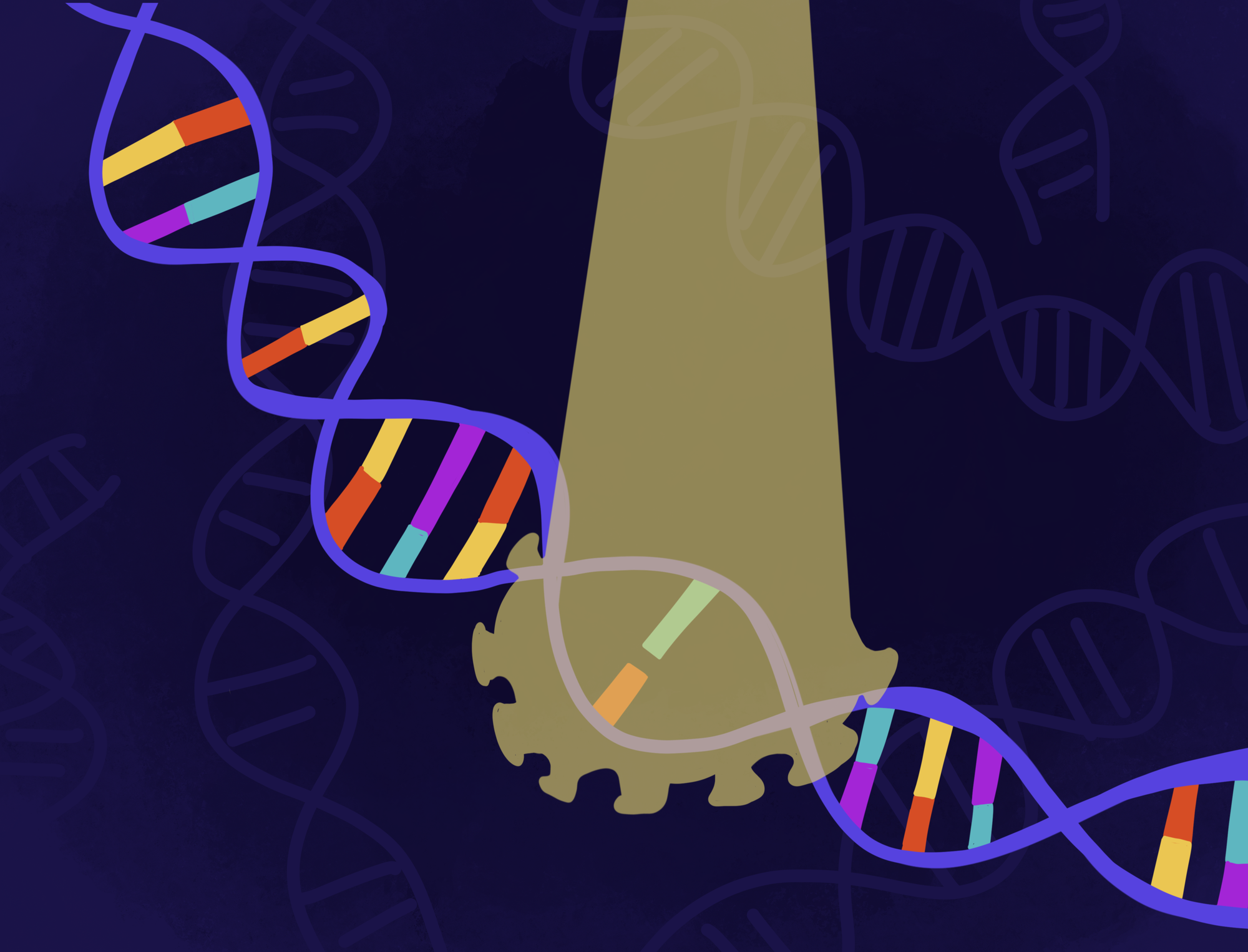UCLA researchers study link between genetics and reaction to COVID-19

COVID-19 affects people differently as some do not exhibit any symptoms while some need to be hospitalized. Researchers are wondering if the different symptoms depend on a person’s genes. (Illustration by Emily Dembinski/ Illustrations Director)
By Phoebe Chen
Nov. 20, 2020 9:46 p.m.
Researchers are trying to find out if genes are responsible for why COVID-19 affects people differently.
Daniel Geschwind, a UCLA neurology professor, said COVID-19 has been troubling to researchers because the disease affects people differently – some have mild to no symptoms while others have to be hospitalized, he said. Geschwind said there are not many disorders that behave vastly different in different people.
This led researchers to think there may be a relationship between a person’s genes and how severely COVID-19 affects them, he said.
Geschwind’s research group is comparing the genes of COVID-19 patients to see if there is a pattern between a person’s genetics and their susceptibility to COVID-19, Geschwind said. In particular, he said they are looking at common differences in gene sequences that are shared between people with common ancestry and rare genetic mutations that typically have large health effects.
Previous papers support the theory that some genes could interact with SARS-Cov-2, the virus that causes COVID-19, by protecting the virus or increasing a person’s vulnerability to the virus, said Bogdan Pasaniuc, a professor of pathology and laboratory medicine, human genetics and computational medicine.
“We’re trying to understand whether there are particular genes that are turned off or on, but mostly off, that allow for the virus to essentially enter and cause disease much faster or much more severe,” Pasaniuc said.
The results of the study could help predict who is more vulnerable to COVID-19 and could help develop a drug that interferes with the genetic code of the virus itself, Geschwind said.
In order to conduct the study, Geschwind, Pasaniuc and Manish Butte, a pediatrics professor and immunologist, will collaborate with medical centers from the UC and all over the world.
Pasaniuc said although there is a lot of shared data on genetics that the researchers can use, most of it is based on the genetics of people with European ancestry. This lack of diversity may hinder the research unless data of other ancestries are considered, he said.
A separate University of Pennsylvania study found that more than 80% of genetic research is related to genetics of European ancestry.
“We think (the lack of diversity) is really problematic because it means that a large proportion of the world or of people of diverse ancestry are not fully benefiting from human genetics research in a number of ways,” said Sarah Tishkoff, a genetics and biology professor at the University of Pennsylvania and a co-author of the study.
Other than genetics, environmental and social factors may also influence susceptibility to COVID-19, Pasaniuc said.
Pasaniuc said certain populations may be more vulnerable to COVID-19 due to their socioeconomic status, access to healthcare and likelihood of being an essential worker.
“Individuals of certain ethnic backgrounds are forced to become more exposed because they have to go to work,” Pasaniuc said. “Whereas individuals of other ethnic backgrounds, because of different socioeconomic statuses, might not be so much exposed to the virus.”
These studies can differentiate whether social factors like systematic racism or genetics led an individual to contract COVID-19, Tishkoff said.
“In many ways by looking at genetic data of diverse ancestries, we can rule out the hypothesis that genetic predisposition is differential by ethnic groups,” Pasaniuc said.
Pasaniuc said the most positive outcome is that everyone wants to help and solving an issue as large as COVID-19 requires communication between specialists from various fields such as statistics and immunology.
“Probably one of the most positive outcomes of the pandemic in terms of research, is that everyone wants to help,” Pasaniuc said. “Everyone wants to throw in their expertise towards understanding the disease and coming up with a treatment and finally curing it.”


